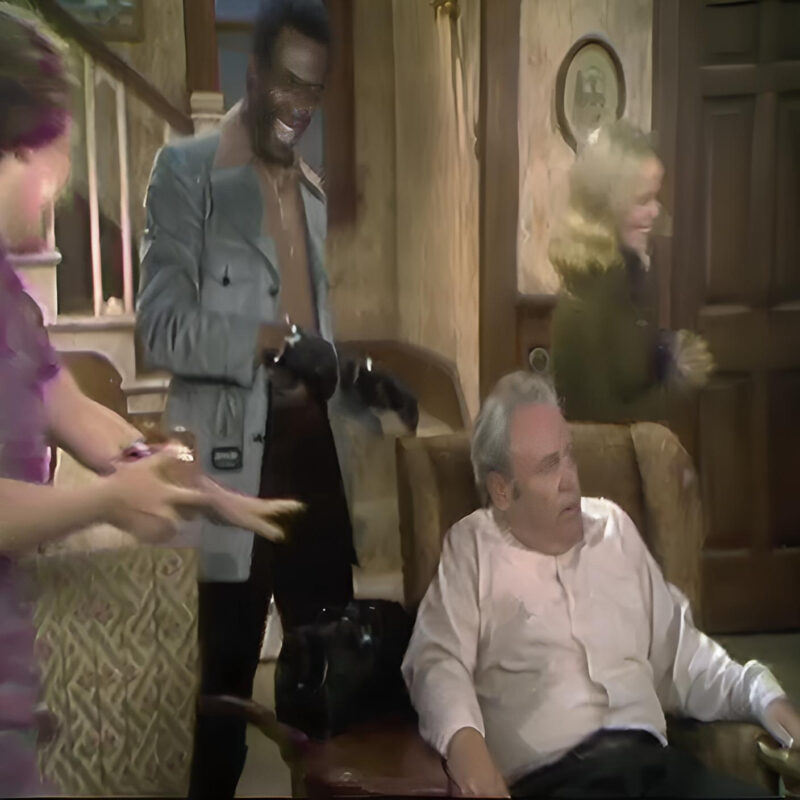
Actor Carroll O’Connor faced a pivotal moment in his life when he stood trial for slander charges, accused by Harry Perzigian of implicating him in the tragic suicide of O’Connor’s son, Hugh, due to drug supply. The courtroom drama unfolded against the backdrop of O’Connor’s storied career, most famously as the opinionated Archie Bunker in the groundbreaking television series “All in the Family.”
The legal saga began with O’Connor’s public assertions, made in televised interviews, where he directly blamed Perzigian for his son’s death, labeling him as complicit in what he termed “a partner in murder.” These accusations sparked a fierce legal battle, with Perzigian seeking $10 million in damages and a restoration of his tarnished reputation.
During the trial, emotions ran high as O’Connor, now 72 years old, expressed both relief and determination outside the courtroom. He asserted his right to continue speaking out against Perzigian, emboldened by the jury’s unanimous verdict clearing him of all charges. O’Connor’s words carried weight, reflecting the deep personal loss he endured following Hugh’s suicide on March 28, 1995, driven by a prolonged struggle with cocaine addiction that plunged him into depression and paranoia.
Hugh, who had appeared alongside his father in the television series “In the Heat of the Night,” tragically took his own life with high levels of cocaine in his system. His final words to his father, “So long, Pop,” echoed hauntingly through the courtroom as O’Connor fought to hold Perzigian accountable for what he believed was a pivotal role in his son’s downward spiral.
In the aftermath of Hugh’s death, O’Connor wasted no time in publicly accusing Perzigian of supplying drugs to his son. He openly challenged Perzigian to sue him for slander, a challenge Perzigian accepted after serving a brief jail sentence for drug possession and distribution charges related to Hugh’s case.
The trial drew attention not only for its legal implications but also for its emotional intensity. Jurors, speaking anonymously, revealed their empathetic stance toward O’Connor, citing their own parental instincts and understanding of the actor’s grief-stricken state. They deliberated for hours, weighing the arguments presented by both sides, before unanimously siding with O’Connor.
Perzigian, portrayed by his legal team as a minor figure in a David versus Goliath struggle against a celebrity, failed to convince the jury of his innocence. Despite claims that he and Hugh were merely friends who shared drugs recreationally, jurors found inconsistencies in his defense, viewing his acceptance of checks as payment for drugs as tantamount to dealing.
In contrast, O’Connor’s attorney, Lucy Inman, successfully argued that her client had the right to express his views publicly about Perzigian’s alleged involvement in Hugh’s death. Her defense underscored the broader issue of freedom of speech and the responsibilities that accompany it, especially in matters of public interest and personal tragedy.
As the trial concluded, O’Connor expressed profound gratitude to the jury, acknowledging the personal and financial toll the legal battle had exacted. He spoke with tears in his eyes, thanking the jurors for validating his right to seek justice for his son and for supporting his efforts to hold Perzigian accountable.
The case, while legally resolved in O’Connor’s favor, highlighted the enduring pain and complexity of addiction-related tragedies within families. It underscored the challenges faced by those grappling with loss and the lengths to which individuals will go to seek closure and accountability in the aftermath of personal devastation.
